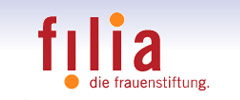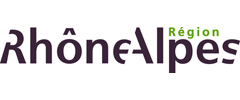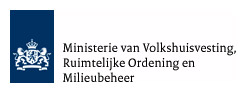Ukraine - Ecological Sanitation Solutions
Dry urine-diverting toilets for schools and households
05.06.2004
| Countries: | Ukraine |
| Donors: | Fondation Ensemble, France |
| Partners: | MAMA-86 Odessa, MAMA-86 Kiev and MAMA-86 Sevastapol |
| Issues: | Water & Sanitation |
| Duration: | 09/2005 - 08/2006 |

Background
In the project village Gozhuli in Poltava oblast, WECF and Mama-86 teams were confronted with severe environmental problems.
Gozhuli has 3,600 inhabitants. The village is partly connected to a sewage and central drinking water system. Most inhabitants, over 800 households, rely on drinking water from mainly 448 unprotected private wells.

- The majority of citizens of Gozhuli receive bad quality drinking water from the central water system. The central water system delivers water from 200 m depth with much too high fluorine and salt concentrations. In addition leaking pipes contaminate this water.
- The other 800 households rely on private wells, which are polluted with nitrate (100 – 250 mg/l) and micro organisms.
- Latrines in the yard are common, especially for households which are not connected to central drinking water system. Because of the difficult economic situation latrines are mostly not emptied and excrements leach into the soil and groundwater. Septic tanks are overloaded and also contribute to soil and groundwater contamination.
- The desolated conditions of the sewage system is a severe problem. Pipes are leaking, the pumps of the pump station are functioning badly and the treatment plant is totally neglected, mainly caused by lack of financial resources.
- All these facts contribute to severe water pollution. Other wastewater management approaches are needed under the given circumstanced.
School toilets
The school of Gozhuli has 160 children from grade 1-9 and 15 teachers. A flush
toilet was installed in the kindergarten but the older children had to use two
pit latrines in the garden. These pit latrines did not meet the sanitation standards.
Latrines outside in the schoolyard are common in the rural areas of Eastern
Europe and NIS. Going to the latrine in winter affected children's health. In
addition, the toilets smelled and were in a very poor condition.

As an example for other schools in Ukraine and elsewhere in the NIS, four separate
double vault compost toilets (no mix toilets) and three urinals were designed
by Dipl.-Ing. Stefan Deegener (Prof. R. Otterpohl) of the University Hamburg-Harburg
and constructed by a local company. The new toilet building could be accessed
directly from the school building.
The toilets are examples for:
- how comfortable new ecological sanitation toilets can be
- how sanitation conditions can be improved
- how to build separate compost toilets
- how soil and ground water pollution by excrements can be avoid
- how drinking water for flushing excrements can be saved
- how nutrients can be recycled
- how composted excrements can be used safe as fertilizer or as a soil conditioner
- how to manage human waste safely, when no water connection or sewage system is available

Key facts of separate double vault compost toilets
The most important is that urine and faeces are properly separated, collected and stored. A direct natural separation is possible by using a special toilet. This can be a seat model or a squatting slab, as was preferred for the school. Storage of urine and composting process of the faeces kill or reduce pathogenic micro-organisms.- A pipe connected to the urine bowls, conducts urine of all the toilets/urinals to a 2-m3 reservoir, which is buried in soil
- After the urine reservoir is filled (after app. 6 month), the pipe can be moved easily to the second reservoir.
- After faeces disposal in the chamber with content of 0.85 m3, faeces are directly covered with fine wood ships or a mixture of soil and ashes. A ventilation pipe brings fresh air into the chambers
- After storage of the urine during 6 month, the urine can be used as a fertilizer.
- After one compost chamber is filled (after app. 1 year), the squatting slabs are moved to the second chamber; during this time the feaces in the first chamber are in rest and through compostation turned into dry humus (soil).
- After the second chamber is filled, the first chamber is emptied and the slab is moved back. If needed the composting process can be continued together with other organic materials in a heap
- After a composting time of 2 years of the faeces – now turned into compost/humus - the compost/humus can be used as a soil improver or fertilizer.
Education, surveys and investigation
For the children, teachers and the caretaker, 2 workshops were organized and education materials were applied on the use and maintenance of the eco-sanitation toilets.Also the WECF-publication “Ecological Sanitation and Associated Hygienic Risks” was translated to Ukraine language.
Surveys and investigation on operating and acceptance of the toilets will be carried out. Hygienic aspects will be taken in considering as well. Activities will be developed in cooperation with Mama-86, University of Poltava and Hamburg-Harburg.
Ecological Sanitation Information websites
- ecosanres.org
- sida.se
- siwi.org
- gtz.de
- otterwasser.de
- tu-harburg.de
- sanicon.net worldwatercouncil.org
- cowaters.org
On the 30 October 2004 the eco-sanitation toilets built as a demonstration
object will be festively inaugurated. The building of the eco-sanitaiton toilet
building is part of the joint project of MAMA-86 and WECF - with sponsorship
from the Dutch Ministry of Foreign Affairs MATRA programme.
The mayor, regional authorities and representative of the Dutch Embassy took
part in the opening festivities. The eco-sanitation toilets for the school of
Gozhuly were the first of its kind to be build in Ukraine.

Location
three rural villages/towns in three different parts of Ukraine:- Gozhuly village, Poltava oblast. (Center of Ukraine)
- Bobrik village, Nizhin rayon, Chernihivska oblast (North-Western Ukraine, the province most contaminated with radionuclides due to Chernobyl)
- Vorohta town, Yaremche rayon, Ivano-Frankist Oblast (Western Ukraine)
Key problems
The detailed problems this project will address are:- low level of living standards and social and economic development of rural villages in Ukraine;
- low level of knowledge and experience in effective public participation and cooperation between authorities and citizens to improve local situations
- lack of knowledge on the relationship between health and environmental pollution
- lack of knowledge about affordable solutions, alternative techniques, to
solve pollution problems
- no clean drinking water provision
- no waste management for latrines, waste-water, farm-waste
- low level of employment both in the public and private sector
- large-scale inefficient subsistence-farming and lack of knowledge on increasing income from sales of agricultural produce
- lack of knowledge about the relationship between environment and health,
sources of contamination and how to avoid contamination.
- pollution of drinking water, particularly with nitrates and micro-bacteriological pollution
- higher level of mortality and morbidity of the population, especially effecting small children
- depletion of living conditions as a basis for sustainable economic and social development
Overall objectives
- contribute to an improvement of the health of vulnerable groups in rural Ukraine through better sanitation, agriculture and drinking water
- contribute to a greater amount of self-initiative and citizen’s based activities for development of the rural areas in Ukraine
- contribute to sustainable economic, social and environmental development in rural Ukraine
- contribute to increased and well qualified participation of women in local policy making
Project goal
Empower key target groups of rural citizens in three rural communities, as well as their local authorities to play an effective and stimulating role in societal transformation by carrying out practical replicable improvement projects in the areas of water, sanitation and agriculture, which have a direct benefit for the economic and health situation of the three rural communities, and strengthen participation of women in this process.Download the full version of the Summary of the Ukraine Project.
First Project Report
In the 1st period of the project ‘Sustainable Rural Development' a great amount of activities were carried out.The project inception, including:
- the launch meeting with all the team from MAMA-86 and WECF
- the setting up of the webpages,
- carrying out three gender-economic-social analysis
- three gender workshops
- at least 10 detailed laboratory water test and app. 50 rapid tests in the 3 target areas
- the development of the educational brochures (not yet printed)
- hydrogeological background and health data were obtained from authorities
- three project teams were set up
Related News
Meet the Winners of the Gender Just Climate Solutions Award at COP24
On the 70th anniversary of the Universal Declaration of Human Rights, we awarded Gender Just Climate Solutions Winners at the climate negotiations in Katowice, Poland
11.12.2018
Invitation: Gender Just Climate Solutions Award 2018
10 December, COP24 Katowice
04.12.2018
Getting to the Future We Want
4-7 November, Brussels: European Environmental Bureau’s (EEB) Annual Conference
12.11.2018
GoodFood4All
WECF and partners all over Europe start GoodFood4All Campaign
06.11.2018
#Ruralwomen: join our Women2030 campaign!
15.10.2018
Lack of trustworth information is a barrier to chemicals & product related decision-making
8-9 October, Geneva: short report of the meeting of the Aarhus Convention’s task force on public participation in decision-making
12.10.2018
Congratulations Sascha!
Named thirty-third most influential sustainability fighter in the Netherlands
08.10.2018
The Netherlands in the next gear - Adopt an SDG Live!
WECF and Building Change organised the event “The Netherlands in the next gear – Adopt an SDG live” on 27 September in the Koorenhuis in The Hague
02.10.2018
Human Biomonitoring for Europe
Vienna, 26 September: stakeholder forum
28.09.2018












































